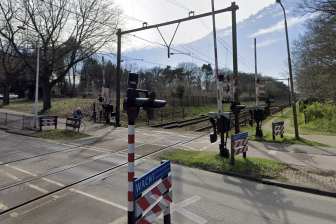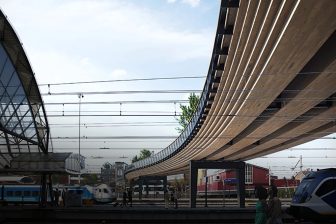EU: CIVITAS support 17 clean urban transport projects
Brussels – Six cities of Estonia, Hungary, Poland, Romania and Slovenia, are amongst 17 projects selected for the €50 million CIVITAS programme for the promotion of clean urban transport. The Commission revealed the names of these six pilot cities in the new member states (Debrecen, Krakow, Ljubljana, Ploiesti, Suceava and Tallinn), to which 11 cities from the old 15 EU member states (Burgos, Genoa, La Rochelle, Malmö, Norwich, Odense, Potenza, Preston, Stuttgart, Toulouse and Venice) are added. “We are particularly impressed by the quality of the projects from new members. Cities in these countries are facing rapid increases in car-ownership and decreases in the use of public transport. I want to encourage local authorities in their efforts to develop and test new transition strategies aimed at maintaining high shares of public transport use, walking and cycling”, said Loyola de Palacio, Vice-President of the European Commission responsible for energy and transport.
The 17 new cities will join an existing group of nineteen CIVITAS cities(1) in combating congestion and pollution through new technologies, innovative planning measures, enhancing energy efficiency and the use of alternative fuels. The aim is to promote the development of attractive alternatives to the use of private cars in cities.
The CIVITAS Initiative is in line with the Commission’s strategy to substitute 20% of the diesel and petrol fuels used in the road transport sector by 2020. The new CIVITAS cities are strongly committed to the use of biofuels and natural gas in their private and public transport fleets. Other measures to be introduced, as part of an integrated approach, include:
– New traveller information and transport management systems;
– The creation of “clean zones” in city centres, where just clean vehicles are allowed;
– Innovative promotional and awareness campaigns for public transport;
– Flexible parking charging systems based on environmental indicators.
One of the key elements of the CIVITAS Initiative is the CIVITAS Forum, launched in October 2002. The Forum, composed by 72 European cities provides a platform for the exchange of best practices, ideas and experiences between experts and politicians. Under the CIVITAS Initiative, the European Commission is supporting ambitious and large scale projects which genuinely combine energy and transport in a coherent manner. The Commission provides 35% of the funding.
More information on the CIVITAS Initiative is available on the CIVITAS website:
http://www.civitas-initiative.org/civitas/home.cfm
(1) Aalborg, Barcelona, Berlin, Bremen, Bristol, Bucharest, Cork, Gdynia, Gothenburg, Graz, Kaunas, Lille, Nantes, Pécs, Prague, Rome, Rotterdam, Stockholm and Winchester.
U las zojuist één van de gratis premium artikelen
Onbeperkt lezen? Profiteer nu van de introductieaanbieding voor € 10,- per maand.
Bent u al abonnee?



